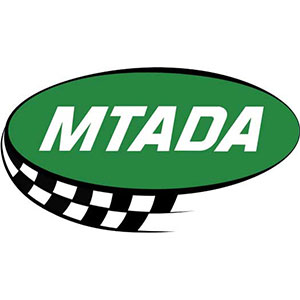R. J. “Jim” Sewell, Jr., a Deer Lodge native and fifth-generation Montanan, graduated from Carroll College in 1968 and served in the U.S. Navy in 1968 and 1969. He joined Smith Law Firm, P.C., in the private practice of law upon receiving his law degree from the University of Montana in June 1971 and acquired the firm in 1992. He began his automobile dealers’ legal work in the late 1970s and has been general counsel to the Montana Automobile Dealers Association since 2004. He was elected to the National Association of Dealer Counsel (NADC) board of directors in April 2015 and served as a board member for six years. In addition to the NADC, Sewell is a member of the State Bar of Montana and the National Association of Dealer Counsel. He is admitted to practice before the state and federal courts of Montana, the Ninth Circuit Court of Appeals and the United States Supreme Court.
Sewell became “of counsel” to Smith Law Firm, P.C., Oct. 1, 2015, when Craig D. Charlton acquired the firm. He continues to serve as general counsel to Montana Automobile Dealers Association and represents many of Montana’s automobile dealers.
MTADA recently interviewed Jim about the dealership industry in Montana as it relates to state laws.
Why are dealer laws important?
Individual dealers have no economic power whatsoever over the manufacturers. Robust national protection was never developed even though there is a seldom-used national dealer day in court law.
Since the 1930s or 1940s and after the war, the manufacturers have been very heavy-handed in doing business with dealers. They get away with it because all the cards are in their hands. The only way to give dealers a modicum of protection is to have laws that protect them.
All the states have developed more and more statutes to deal with bad conduct by the OEMs. The first laws to protect dealers may have been passed as late as 1946 or 1947. Some state laws are stricter than others, but they are all based on a similar framework.
How have dealer laws developed over the years? Have they become more or less effective about protecting dealers?
They are much more effective than when I started in the late 1970s. However, dealers still don’t have equal bargaining power because OEMs always develop new tactics. It’s like putting your finger in the dike and having a leak spring somewhere else. If regulations stop inappropriate conduct
in one area, OEMs figure out another way.
Why should dealers be engaged in the association and ongoing legislative efforts?
If you want your children and grandchildren to be dealers, you need to participate in keeping the OEMs in check. Dealers who act by themselves are largely ineffective in dealing with the OEMs. That means dealers have to act as a body to protect themselves. They need a concerted group effort to right the wrongs.
What’s the most notable change to MTADA dealer law starting in 2005 and ending with the 2021 session?
I think the biggest change is in warranty reimbursement laws, processes and procedures. Dealers now get paid for OEM warranty work on the same terms they do repair work for you and me. That’s the most important thing that’s happened in the 40 years I’ve been doing this.
What other changes are notable?
Montana’s second most important legislation was a data bill that followed Arizona’s lead and NADA’s suggestions.
All the dealers use a computer system for their books and records. When you walk into a dealership, the dealer takes down your name, address, and whatever is on your driver’s license. They also pull up your credit report. Everything gathered goes into the data management system.
When a dealer uses their system, gets data out in a specific format or allows another vendor to pull information because they are putting a sales or service promotion together, the data management companies charge huge fees to extract the data. When dealers stop using their system because of the fees, they make it hard for dealers to get their own data out of the DMS by charging more fees.
Everyone wants customer data. But who owns it? The statute was designed to make it clear that the data in the DMS belongs to the dealer and the management system has no interest in the data itself. It provides that the data belongs to the dealer, and no DMS provider has the right to take it away or charge exorbitant fees to the dealer just because it is stored electronically. As a result, these companies can no longer charge large fees or limit access.
There are a few data management system providers, but two of the biggest companies are Reynolds and Reynolds and CDK Global. After the Montana bill passed, the two companies sued Arizona for any number of what they felt were constitutional violations. Arizona and its dealers won, and they won again on appeal in the Ninth Circuit Court of Appeals in San Francisco. Then both companies gave up on their fight. So we know our framework is constitutional and fair, directly protects dealers and makes it clear dealers own the data. Most states will probably enact something very similar to the laws in Arizona and Montana.
I think agency questions are coming up later. One of the big deals about the agency relationship is similar to the question settled by the data law: who owns the customer and the data? Answering that question will be the next big thing between dealers and OEMs. However, it is helpful that we have the data law.
Another important change for dealers was doing away with the manufacturer’s right of first refusal. According to the manufacturer’s sales and service agreement, it used to be possible to block a dealer if they decided to sell, which meant a manufacturer could prohibit a dealer from selling to a long-term employee or family member. If a dealer had two or three franchises and found a buyer, but one of the manufacturers had a right of first refusal, the manufacturer could also insist on buying one of the dealerships. Minus one dealership, the dealer could then lose the entire sale.
In the last session, provisions were made about dispute resolutions between dealers and manufacturers. It used to be that the major way to deal with a manufacturer was to file a lawsuit, but nothing prevented the manufacturer from dragging you off to federal court. Things move more slowly in federal courts than state courts, and the slow pace favors manufacturers. Also, it is ungodly expensive to litigate in federal court, especially in Montana, which has a limited number of federal courts. The state’s only federal courts are in Helena, Missoula, Billings, Great Falls and Butte.
Thanks to work done in the last session, dealer law now has a provision to prevent cases from dragging out. Dealers can request the manufacturer engage in mediation within 60 days or so. If mediation fails, the dealer can send the case to the Montana Department of Justice as an administrative law proceeding. That way, the dealer doesn’t have to worry about getting dragged off to federal court. The whole process is streamlined and inexpensive. It provides an avenue for the dealer to use in response to what a manufacturer has proposed or done.
Most of the changes I’ve discussed all happened in the last 10 years.
What is the greatest challenge to the franchise system?
The greatest challenge is the advent of buying and marketing vehicles electronically, including EVs in general. EVs are certainly at the tip of the spear as far as what the next big issue will be because the current administration strongly emphasizes the subject. But out-of-state companies and Montana dealers have marketed vehicles across state lines over the internet for some years now.
Montana is already using federal money to install charging stations up and down the highways, and the association recently had a summit on charging stations in Helena. Legislators, representatives from the power industry and Tesla representatives all showed up at the capital. Everyone had a chance to see and drive EVs such as the Ford Lightning and Ford Mustang, and the event was a hot topic in the trade press.
What’s the agency model being promoted by manufacturers?
Manufacturers are promoting an agency model in Australia and Europe that would be bad news for American consumers because it is a recipe for price fixing. It allows manufacturers to require selling all vehicles at the same price. But those prices won’t be lower. When the OEMs set the price, they will set it as high as they think they can get away with. The OEMs are never happy with their share of the pie. They always want more.
Tesla uses a kind of agency model because it has no dealers; however, the agency model is not prevalent in the U.S. apart from Tesla.
The dealer model is the opposite of the agency model. OEMs can’t set the price. They can suggest a price, but the dealer who owns the vehicle looks at competitive and market conditions before setting the price they want for that car. There is plenty of competition to force prices down because there are franchised new car dealers throughout the state.
OEMs want to fix the retail price and control the margin. They also want to own the customer data. As it is now, the customer is the dealer’s customer. How did the dealer get the customer? They did it by offering a vehicle for the right price, developing a personal relationship with the customer, providing excellent service when necessary, providing a loaner and likely washing the repaired car after the repairs are done. All the personal customer service-type work would go out the window with the agency model because the dealership becomes just the delivery location. The dealer’s opportunity to develop a personal relationship with the customer would be very limited in that circumstance because they would only be doing deliveries.
There are other issues with the agency model that the OEMs never talk about. For example, what happens to used cars? Nobody goes into the showroom to buy a car without a trade-in. What’s going to happen to the trades? Will the dealer have to buy them from the OEM for an OEM-fixed price? Who is to say the OEM price on a trade vehicle will interest the dealer?
The more important question is how can the dealer stay in business with no cars to sell if all they do is make deliveries for a fee set by the OEM? The agency model appears to be inappropriate in the state of Montana. Dealers in large cities might sell enough cars at $100 per car to stay in business, but if a small city in Montana only sells a few cars in the same amount of time, that’s not enough money to keep the doors open.
The trade press I’ve read states the agency model would make more money for the OEMs, plus they would own the customer data. I’ve already talked about the fact they want to control the data. But I don’t see the agency model going anywhere here. It may, but I don’t see it.
Does the agency model have any benefits for dealers?
Zip. Zero. None. And there’s no benefit for the consumers either. They won’t necessarily be able to get a good deal on their trade and will have to pay a fixed price.
Prices stay artificially high when manufacturers control the price. Think about an Apple iPhone. Would the high-end models cost $1,000 if they were sold through distribution? Using an agency model, manufacturers hope to reduce the number of dealers by 5-6% each year, depending on the market. That reduction means 5-6% of service departments go away yearly, too.
Sometimes Teslas need service. If you have one that needs repairs, where do you have to take it? Do they give you a loaner? Do you have to travel a substantial distance for warranty work? I heard an anecdotal story about someone with a Tesla that needed service. The car was put on a flatbed truck and hauled to a service center. It was gone for some time, and the owner was left without a car. Repairs on a Tesla are different from taking a vehicle into your local dealership’s service center at 8 a.m., getting a loaner car to use during the day, and picking your vehicle up at 5 p.m.
What would you say to customers who like buying a car without haggling over the price? Are there hidden harms they should be aware of?
Paying fixed prices means spending more money than you need to. If you are not price conscious and want a particular car, you will have to pay the price. However, customers will pay the price if the value is there for them. One example of that was mid-engine Corvettes. Initial buyers had to pay a premium if they wanted one that was just off the line.
How can dealers reward loyal customers if they can’t give them a discounted price?
Loyalty doesn’t have much to do with discounted prices. It has to do with how businesses take care of you. Are you somebody who is treated with respect? Do they know you by name? There was a show called Cheers (1982-1993). The theme song talked about a place you can go where everybody knows your name. You don’t go to the local bar for the cheapest beer; you go there for the people who know your name.
You may not get the cheapest deal at your local dealership, but you will get a good one and feel respected and appreciated there. The best business relationships have a personal element. Price has something to do with making a sale, but when you see a customer over the life of their car ownership, you will see them when their car needs service and repairs, not just when they need to buy another car.
Agency models overseas differ between brands. For example, Mercedes and Honda have different programs. Which are the best or worst?
The agency model is so new overseas that manufacturers are testing the water to see what they can get away with. Manufacturers such as Mercedes might test out one plan in some nations, another plan in other nations, and the third plan for Germany. I see some references to the “light” version of the agency model, where the dealer is involved to some degree, but the references aren’t particularly relevant to us yet. I don’t know the details about how the plans differ.
How do franchises work with an agency model? What’s the difference between a traditional franchise and a franchise that uses an agency model?
Never say never, but the combination doesn’t seem practical. In a rural state like Montana, we don’t want to give manufacturers more power than they have now and turn dealers into delivery places.
What can dealers do to protect their livelihood in the future?
Get involved with the association. Your livelihood depends on it.








